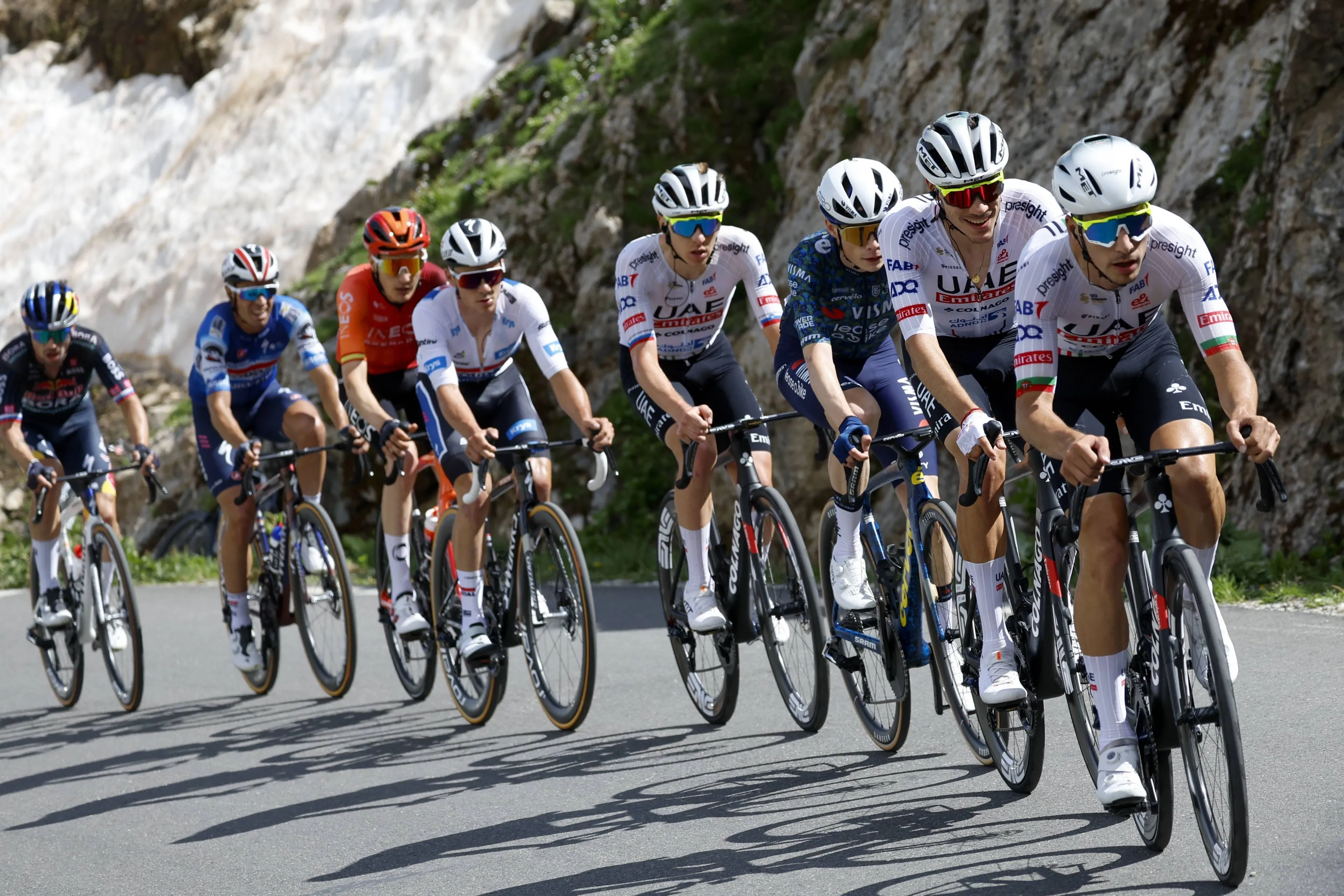Romain Bardet: "Carbon monoxide can explain the trajectory of some people we didn't know about a year ago... it's now up to the authorities to decide whether or not to ban"
CyclingWednesday, 13 November 2024 at 14:22

Having spent more than a decade riding at the very highest level, Romain Bardet has seen a lot of developments within the professional peloton over the course of his career. One of the more recent is the controversial use of carbon monoxide.
An aggressive approach called carbon monoxide inhalation, steps into the scientifically new and much riskier realm of inhaling the lightly poisonous gas (carbon monoxide) for the express purpose of performance enhancement. A growing body of recent scientific research suggests inhalation can have a powerful impact on measures of aerobic capacity like VO2max, or maximal oxygen uptake with reported links to teams such as UAE Team Emirates, Team Visma | Lease a Bike and Israel - Premier Tech.
Read also
In an extensive interview with Eurosport upon the end of his career, Bardet was asked for a rider's view on the controversial topic that currently escapes a WADA ban. "Honestly, I learned about it from the press. You see the studies. Anything is possible. I've never heard of anything, but then again, I wouldn't be surprised. There's so much research being done into the idea of optimising performance..." the Frenchman assesses. "It's not surprising that there are some researchers, some teams, some people involved in cycling who are looking elsewhere. There will always be a desire to find competitive advantages."
Is it a fair advantage though or should the use of carbon monoxide for performance gain be banned? "It's up to each individual to set the threshold of what seems ethical and fair in the absolute and desperate search for the end result in relation to his or her values. It's like ketones, like so many things, it's open to interpretation. And unfortunately, since the rules are not clearly laid down, since this interpretation is left to the discretion of each individual and since we're in an ultra-competitive sport where only victory counts, we shouldn't be surprised by possible deviations," Bardet ponders. "Carbon monoxide can explain the trajectory of some people we didn't know about a year or a year and a half ago, but it's also a bit easy to blame them without looking at their trajectory. These procedures have been documented and it's now up to the authorities to decide whether or not to ban them and to carry out checks. In such a competitive world with so much at stake economically, it is totally pointless to believe that it is the goodwill and irreproachable ethics of the riders and teams that will allow a healthy regulation of the environment. It is totally illusory."
Read also
claps 0visitors 0
Just in
Popular news
Latest comments
- No matter what people say - I'll watch it. And I bet all the complainers will do it too....averagecyclist18-02-2026
- Exactly what I'm thinking about it. Moreover Van Glis had a lot of time to rethink his situation but decided to stay where he was.averagecyclist18-02-2026
- Soler must be pissed at that
 leedorney18-02-2026
leedorney18-02-2026 - Completly agree, Jan was in front of van gils, following Pidcock wheel, it was Van gils who tried to force his way through Jan and the barriers. Are they blaming Jan because he belongs to the richest team that win a lot?
 maria2024202418-02-2026
maria2024202418-02-2026 - Clickbait title, not reality-based. Yawn.itsent18-02-2026
- lame, but probably correctantipodeanpedalfan18-02-2026
- Van Gils rode like wanted to get crashed or way too over confident that he was going to overtake Jan before getting pinched. It was obvious were Jan was going/had to go and MVG had the whole road to give an inch so he would have a chance to overtake on the rightjad2918-02-2026
- Double book this showing with the Melania documentary and you might get 100 people to see it...total !frieders318-02-2026
- Simple solution...stay off the barriers since you might get closed out ! Christen's sprint was legal as he was trying to get into the slipstream of Pidcock.frieders318-02-2026
- I believe Remco now understands that he will have issues reaching the top step as long as Tadej is in the Tour, whiles he's a year junior to Tadej he has had his upper body rebuilt twice now from crashes over the last few years. I think he has a chance to win the Tour in a few more seasons, you can only prepare yourself as best you can and try. He said he needs to race some more one week stage races, he should, he can probably win them all. I also believe Remco should aim for another Vuelta if he comes out of the Tour in good form and maybe he should think about the Giro again for next season. This is potentially Tadej's fifth Tour win coming up this year, no one is going to derail that unless he falls off the bike or gets really sick.awp17-02-2026
Loading
5 Comments








